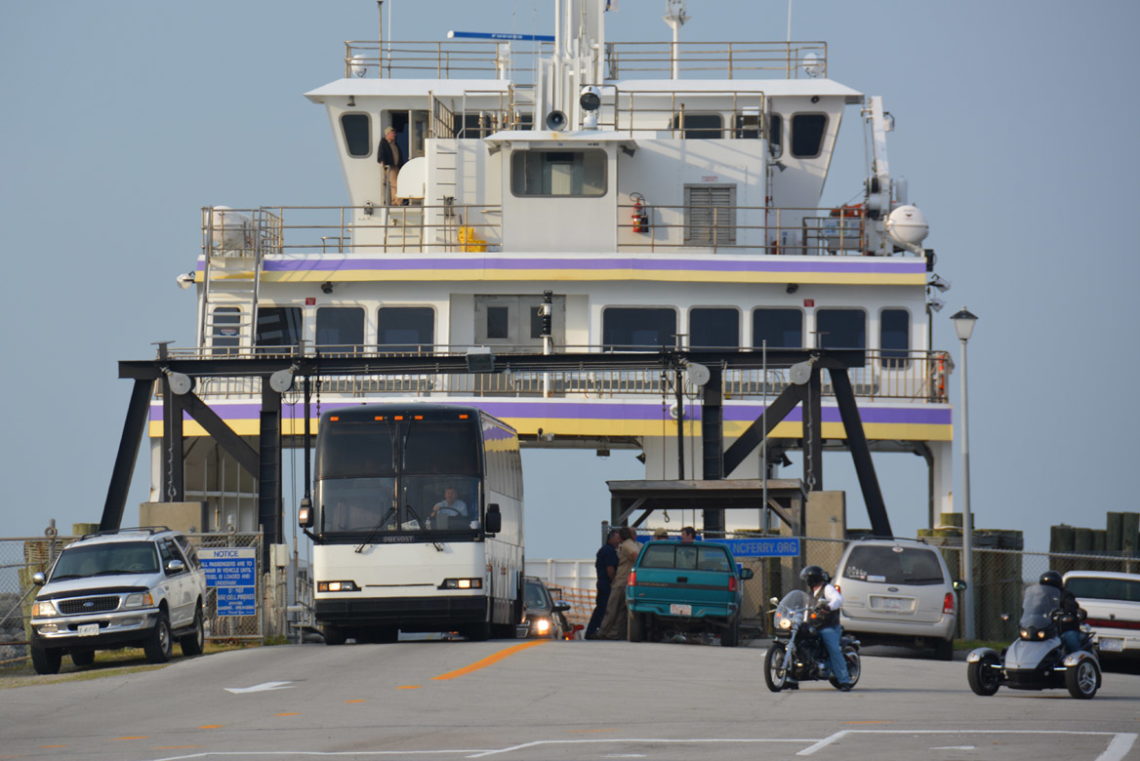The objectives of this project are to (1) assess variability in real-world fuel use and emission rates (FUERs) across vessels, engines, and trips, and (2) quantify annual ferry fleet emissions, uncertainties, and reduction potentials.
For the first objective, real-world measurements were conducted on two vessels, Motor Vessels (MVs) Frisco and Stanford White, operating on the Hatteras–Ocracoke route in North Carolina. Between 8 and 11 one-way trips per vessel were measured using Portable Emissions Measurement Systems to capture second-by-second exhaust concentrations of CO2, NOx, and particulate matter (PM) from port and starboard engines. Second-by-second vessel and engine activity data were also collected, with approximately 70,000 data points processed through synchronization and quality assurance.
Results show that for an average trip and main engine, MV White has 16% lower fuel use and CO2 emission rates, but 80% and 18% higher NOx and PM emission rates, respectively, than MV Frisco. For an average trip, variability in FUERs of a given vessel between main engines ranges from -33% to +48%, depending on the pollutant. For each vessel-engine combination, minimum trip-average FUERs are 7%–43% lower than maximum rates, depending on pollutant, highlighting the potential for fuel savings and emissions reductions due to modified ferry operations. Comparisons of FUERs across vessels, engines, and trips offer insights into the primary drivers of variability. The influence of sailing orientation and environmental conditions (e.g., sea current speed and direction) is also discussed.

For the second objective, annual emissions were estimated for all 23 vessels in the North Carolina ferry fleet using an emission factor-based approach based on Environmental Protection Agency (EPA) certification databases, engine characteristics, operating hours, and trip-average loads. Uncertainty was estimated using non-parametric bootstrap simulations for NOx + hydrocarbons (HC) and PM. CO2 emissions were estimated using a mass balance approach based on vessel fuel consumption data. Estimated annual emissions for 2024 varied from 2.1 tons (95% uncertainty range [UR]: 0.4–3.8 tons) to 35 tons (95% UR: 27–43 tons) for NOx+HC, 0.06 tons (95% UR: 0.05–0.07 tons) to 0.62 tons (95% UR: 0.48–0.75 tons) for PM, and 218 to 2,234 tons for CO2, depending on vessel.
Three fleet-level mitigation scenarios were evaluated: vessel rearrangements reduced emissions by 6–7%, compliance engine upgrades achieved larger reductions for PM (32%) and NOx+HC (26%), and maximum stringency upgrades achieved the largest reductions (up to 68% for both PM and NOx+HC). This suggests vessel rearrangements may offer a cost-effective option for reducing fuel use and CO2 emissions, while engine upgrades may provide greater benefits for mitigating NOx and PM emissions. Variation in estimated annual vessel emissions within the fleet was driven mainly by operating hours and main engine emission factors.
